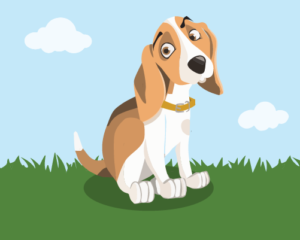 Your dog’s poop can tell you a lot about his or her health. Let’s face it, as much as we love talking to our dogs, they don’t really have a way of talking back. They can’t tell us what they’re thinking, how they are feeling, and more important, if they feel sick. Your dog may be suffering from a bad tummy ache for days without your knowledge. One of the best ways to check on the health of your dog is to look at what comes out of him.
Your dog’s poop can tell you a lot about his or her health. Let’s face it, as much as we love talking to our dogs, they don’t really have a way of talking back. They can’t tell us what they’re thinking, how they are feeling, and more important, if they feel sick. Your dog may be suffering from a bad tummy ache for days without your knowledge. One of the best ways to check on the health of your dog is to look at what comes out of him.
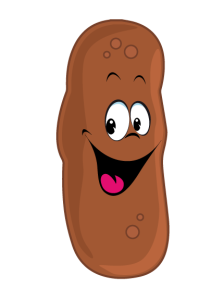
What’s a normal dog poop?
A normal stool for them is typically what we humans aspire to produce- a moist, firm, and compact brown log with a suttlle odor. Any deviation in either looks or smell can let the pet owner know that something’s up. It can be something as simple as your dog eating something that’s hard for them to digest, or there could be a more serious ailment developing inside.
The consistency of unhealthy dog poop
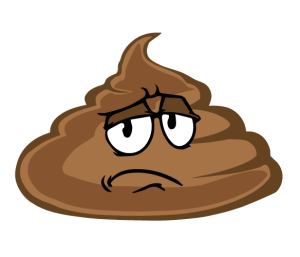
Mud pies, most likely a result of diarrhea, consists of soft stool with very little form. This typically occurs when there is a change of brand of dog food or perhaps the dog got into some food they weren’t suppose to. Make sure you or your vet checks for any visible blood or mucous, which can imply the presence of an intestinal parasite such as giardia.
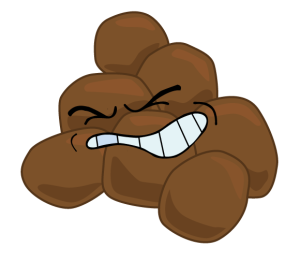
Pebbles are small hard poopies that are typically found in senior dogs and suggests dehydration. Make sure your dog is not being given any salty snacks. You may want to research what chew toys or treats your dog has been given. They may be laced with unwelcome preservatives or chemical ingredients. Dehydration is also the culprit for a dog that is constipated and is unable to produce any bowel movements.
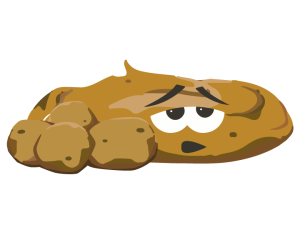
Greasy stools can be a sign of too much fat in your dog’s diet, leading to maldigestion. If the diet is not addressed, the chronic dysfunction can trigger pancreatitis, which is inflammation of the pancreas that can range from very mild to life threatening.
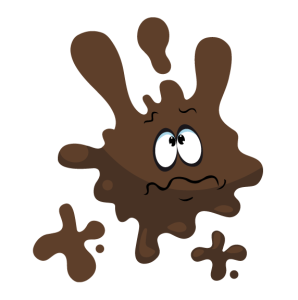
Watery stools can be a sign of a viral infection such as parvovirus that can quickly lead to severe dehydration – most commonly seen in puppies. Monitor your dog’s poop closely or have a vet examine it or worms, eggs, or other uninvited guests.
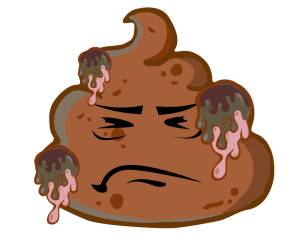
Mucus found on the stool indicates an irritation or inflammation of the intestines. Try to playback what your dog has eaten lately or could of possibly eaten. Was he chewing on grass? Did you accidentally leave food out within reach? Any dog toys, towels, or clothing missing that your dog could have ingested? The mucus could also be a result of the presence of parvovirus or parasites, which will warrant a veterinarian’s intervention.
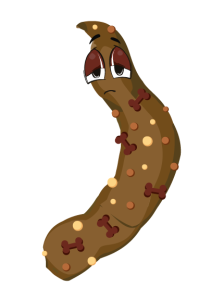
Undigested food found in the stool shows your dog is either not properly chewing his food or is unable to digest it, which may indicate a food allergy. Next time you’re at the pet store, seek out dog food that does not contain any grains. It can also be a matter of the kibble being too large to chew, where then a “small breed” product would be the answer. If this problem began at an early age, it could be due to a digestive disorder that may require prescribed medication.
The Color Spectrum of Unhealthy Dog Poop
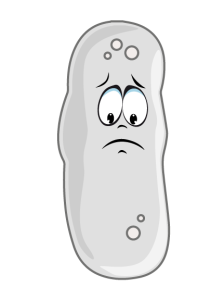
White stools have a lot to do with calcium intake, most likely originating from being given raw, whole bones – (and I don’t mean the ones you can purchase at a pet store). Actual animal bones not properly prepared for dog consumption can be very dangerous for dogs. Bone splinters can accumulate in the stomach or bowels, or even worse, puncture their organ walls.
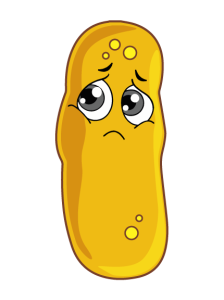
Yellow waste typically means bile, stemming from a food intolerance or food allergy. Think – did you change dog food brand lately? No? The other, more serious answer is that it may have turned yellow due to giardia. Giardia is when your dog may have ate or drank from a contaminated area while on a walk such as drinking from a puddle, or swallowed another animal’s droppings, and now has had tiny parasites invade their intestinal tract, can lead to lyme disease. If you believe this is true, take your dog to vet immediately to receive proper medication.
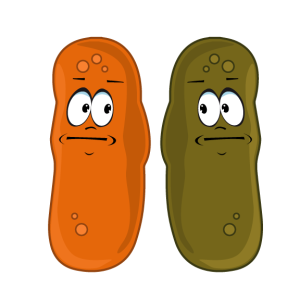
Orange/green excretions most likely stem from food rather than a medical issue. Has your dog eaten carrots lately? Or perhaps has been snacking on a lot of grass? No? You may want to pay a visit to your vet to explore the chance of a liver issue.
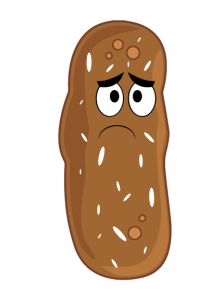
Speckled poop, that is dog poop with white or tan specks in it, marks the existence of worms! Many dangerous parasites like roundworms and tapeworms may be present in your dog’s stool. Tapeworms will look like small white segments similar to grains of rice while roundworms resemble the look of earthworms. Dogs typically get worms when bitten by a flea. Make sure to take your pup to the vet to get dewormed and purchase some flea preventative to help avoid a re-occurrence in the future.
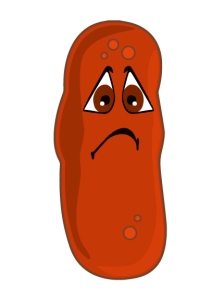
Red dog poop can also indicate blood in the stool. But unlike black stool, red stool most likely stems from bleeding in the lower intestine. There could be a perforation of the intestinal wall from something the dog ingested, or from the eruption of a tumor or ulcer. Blood in the dog’s discharge, whether black or red almost always illustrates a serious health problem that needs immediate action. Before going into full panic mode, you should check the area around your dog’s anal area. There is a possibility that there is no internal bleeding at all and that blood vessels near the anus have formed and then broke due to your dog’s strain on his rectum when attempting to go to the bathroom. Even though this is a less severe condition, you should still seek out your vet to give your pup some relief.
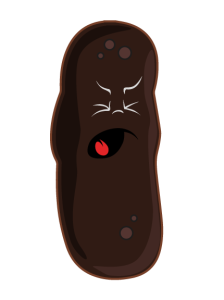
Black or tarry looking poo can be a real cause for concern. This strongly hints at bleeding in the upper intestine. The bleeding could be caused by parasites, infections, allergies, polyps, cancer, or having ingested something sharp and indigestible. When this color is detected, take your dog to the vet immediately.
Dog poop remedies you can do at home
Note that this should be to aid an upset stomach but for any issues requiring medical attention needs to be taken to vet.
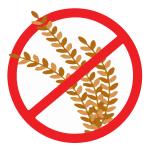 Subtract items from their diet. Shop for pet food labeled grain-free, corn free, and soy. Vets can administer allergy tests to pinpoint a certain ingredient that their stomach can’t handle. Your vet may recommend a raw food diet to avoid processed foods altogether. Avoid giving junk food, scaps, and any foods that can be toxic to your dog’s health.
Subtract items from their diet. Shop for pet food labeled grain-free, corn free, and soy. Vets can administer allergy tests to pinpoint a certain ingredient that their stomach can’t handle. Your vet may recommend a raw food diet to avoid processed foods altogether. Avoid giving junk food, scaps, and any foods that can be toxic to your dog’s health.
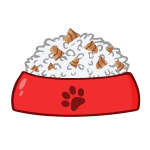 Chicken and rice. Does your dog refuse to eat because of a bellyache? The answer may be cooked chicken and rice. This is not something you would want him to eat long term as it lacks sufficient nutrients, but dogs can’t resist! The chicken does provide more protein and the rice will help harden the stool and add bulk. Make sure to avoid using seasoning and cut the chicken into small pieces or shredded. You can place the food in some hot water if your dog prefers
Chicken and rice. Does your dog refuse to eat because of a bellyache? The answer may be cooked chicken and rice. This is not something you would want him to eat long term as it lacks sufficient nutrients, but dogs can’t resist! The chicken does provide more protein and the rice will help harden the stool and add bulk. Make sure to avoid using seasoning and cut the chicken into small pieces or shredded. You can place the food in some hot water if your dog prefers
 Canned pumpkin. You can mix this in with your dog’s food or offer it on a separate plan. Its an easy to digest, low-fat supplement that can help firm up the stool. Canned pumpkin is also a good source of Vitamin E, Magnesium, Phosphorus and Potassium as well as of dietary fiber.
Canned pumpkin. You can mix this in with your dog’s food or offer it on a separate plan. Its an easy to digest, low-fat supplement that can help firm up the stool. Canned pumpkin is also a good source of Vitamin E, Magnesium, Phosphorus and Potassium as well as of dietary fiber.
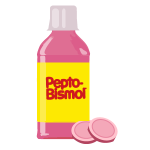 Some veterinarians may recommend over the counter Bismuth Subsalicylate (also known as Pepto Bismol) to help with a tummy ache. The bismuth component can coat their intestines to protect it from toxins and the salicylate acts as an anti-inflammatory to reduce any swelling and alleviate the pain. The dosage amount would be based on your pet’s weight as well as several other factors. Of course, always seek approval from your own vet before use. Note: NEVER give to your cat as it can have deadly consequences.
Some veterinarians may recommend over the counter Bismuth Subsalicylate (also known as Pepto Bismol) to help with a tummy ache. The bismuth component can coat their intestines to protect it from toxins and the salicylate acts as an anti-inflammatory to reduce any swelling and alleviate the pain. The dosage amount would be based on your pet’s weight as well as several other factors. Of course, always seek approval from your own vet before use. Note: NEVER give to your cat as it can have deadly consequences.
When to Call the Vet
Most healthy dogs experience an occasional episode of loose stool or diarrhea that resolves within 12 to 24 hours. Check his stool from time to time, make it part of a weekly or monthly routine. even when he seems to be feeling fine, get a better sense of what is s “normal” for your dog. Any deviation from the normal poo may be a cause of concern.
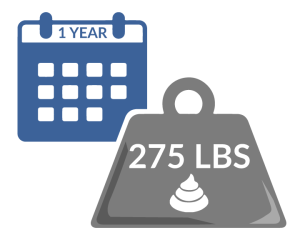 Fecal sampling and testing by your veterinarian should be done at least annually, even for healthy pups. Your vet can detect worm presence long before the creepy, crawlies are evident to the naked eye.
Fecal sampling and testing by your veterinarian should be done at least annually, even for healthy pups. Your vet can detect worm presence long before the creepy, crawlies are evident to the naked eye.
It can take over one year for dog waste to decompose, and within that year, dogs can produce 275 lbs of waste. You definitely don’t want to leave unhealthy stool out that can reinfect your dog, or possibly infect your children and family.
Pet Poo Skiddoo offers routine yard scooping to remove dog’s waste, unhealthy or not, to protect your family from potential lingering bacteria. At no extra charge, you can request to have Pet Poo Skiddoo bag up some of your dog’s poopies for you to take to your vet if you suspect your dog is sick. Pet Poo Skiddoo will certainly look out for any unhealthy looking poops and notify the pet owner of any suspicious looking droppings.
“What your dog’s poop can tell you about his health” – Free Printout
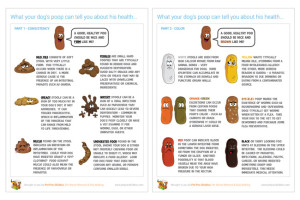

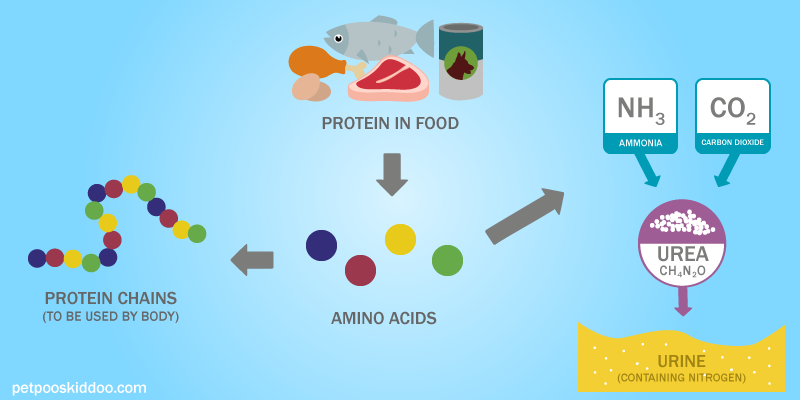 Can you (and should you) alter the nitrogen and pH in your dog’s pee?
Can you (and should you) alter the nitrogen and pH in your dog’s pee? Treatments for Your Aging Dog’s Weakened Bladder
Treatments for Your Aging Dog’s Weakened Bladder What to do if your dog or cat has smelly stool
What to do if your dog or cat has smelly stool